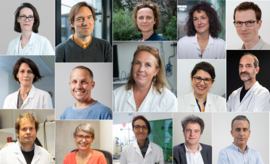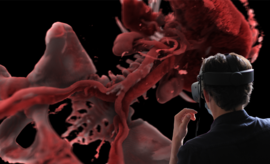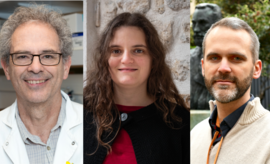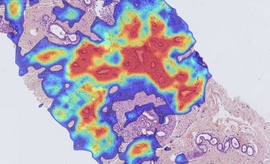Innovation: a collective construction of Technology Transfer at Institut Curie
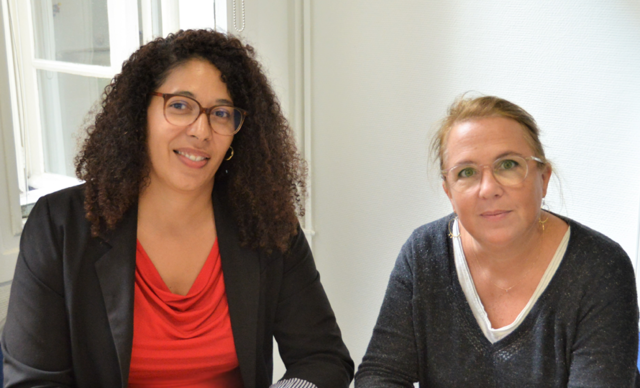
The Tech Transfer Committee brings together 15 experts, doctors and researchers, from Institut Curie. Since January 2022, it has been chaired by Dr. Stéphanie Descroix, CNRS research director and head of the Macromolecules and Microsystems in Biology and Medicine team [1] at Institut Curie.
What is the Tech Transfer Committee (CTT)?
Dr. Cécile Campagne: Created in 2017, the CTT oversees the medical-scientific aspects of Institut Curie's technology transfer projects while the strategic and operational steering is provided by the Technology Transfer Office (TTO), with support from the legal and financial departments. Its objective is to evaluate the projects supported by the internal Curie Innov' maturation program and to represent the voice of employees on all subjects related to "Tech Transfer" at Institut Curie. It also acts as a link with the Research Center (RC) and the Hospital Complex (HC).
What is the role of the CTT in innovation at Institut Curie?
Dr. Cécile Campagne: The Committee has a vital role. Its balanced representation, made up of members of the RC and the HC, allows us to address the problems of researchers, doctors and caregivers, and to benefit from a privileged link with them. The feedback of collaborators who have experienced the valorization of their inventions through patenting, industrial collaborations or the creation of start-ups, is essential to understand our areas of improvement.
Dr. Stéphanie Descroix: The role of the Committee members is to contribute their scientific and medical expertise, and to bring up the needs of their colleagues. The Committee brings together employees who have an appetite for innovation and who wish to actively help develop it at Institut Curie.
What new impetus would you like to give to the CTT?
Dr. Stéphanie Descroix: When the TTO was created, the transfer approach was still little known within the Institute. Today, the employees have acquired a culture in this area. Tech Transfer is becoming more and more participative, which leaves room for the evolution of practices. It is this dynamic that we wish to reinforce in the years to come. Moreover, it is important to underline that TTO is positioned at each step of the chain to offer us the best chances to give life to our innovations. Thanks to the management and valorization mandate granted by the cotutelles, the TTO is our only interlocutor, regardless of our employer, which greatly simplifies the process.
Dr. Cécile Campagne: The initial objective of the CTT was to change the way technology transfer was perceived and practiced at Institut Curie and to move towards a collective construction. Our ambition today is to intensify its advisory and strategic dimensions. To this end, we have created thematic working groups (Maturation, Start-up, Intellectual Property, Major Alliances, etc.) in order to learn from past projects and develop new, more effective approaches that better meet the needs of our collaborators.
What are the long-term ambitions of Tech Transfer at Institut Curie?
Dr. Cécile Campagne: Our ambition is to create a "Tech Transfer Advisory Board" that would bring together international technology transfer experts once a year. The objective would be to challenge our strategic choices and obtain recommendations on the directions we are considering. This body would share its analyses with the International Scientific Advisory Board[2] (ISAB) and Institut Curie's Executive Board.
Dr. Stéphanie Descroix: Mixed working groups made up of collaborators from all walks of life, which I led alongside Dr. Cécile Campagne and Prof. François-Clément Bidard, medical oncologist at Institut Curie, allow us to benefit from the vision of rich and diverse profiles. This is a considerable asset for the construction of the Tech Transfer of tomorrow. Exciting perspectives, such as the concepts of open innovation (FabLabs[3], Living Labs[4], etc.) or questions of innovation ethics, have been highlighted.
[1] (UMR168 CNRS/ Institut Curie/Sorbonne University/Institut Pierre Gilles de Gennes)
[2] The International Scientific Advisory Board, composed of individuals from outside Institut Curie, is responsible for providing strategic advice on the Institute's major orientations and activity programs.
[3] A worldwide network of local laboratories that make invention possible by giving individuals access to digital manufacturing tools.
[4] A system that allows all the players to meet, exchange and collaborate to find innovative solutions for the benefit of patients by placing them at the heart of the process.

